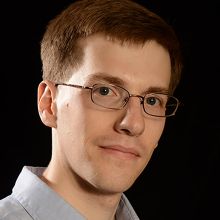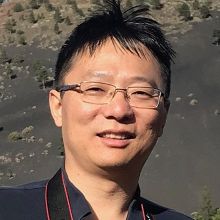
Michael W. Busch is a research scientist at the SETI Institute. His work focuses on radar observations of asteroids, particularly spacecraft mission targets and potential Earth impactors. He has also worked on observations of the Moon and of Mars and its satellites. He is a member of the DART Investigation Team.

Dr. Andy Cheng is a planetary scientist at JHU/APL and a Lead Investigator for the mission. He was Deputy Chief Scientist for Space Science at NASA Headquarters from 2007 to 2008. He was Project Scientist of the NEAR mission, the first mission to orbit and land on an asteroid in 2001. He was an Interdisciplinary Scientist on the Galileo mission to Jupiter from 1995-2003. He was the Principal Investigator for the Long Range Reconnaissance Imager (LORRI) on the New Horizons mission to Pluto and the Kuiper Belt Object Arrokoth. He obtained his A. B. in physics from Princeton University in 1971, and his Ph. D. in physics from Columbia University in 1977.

Dr. Jian-Yang Li is a Senior Scientist at Planetary Science Institute. He is a DART investigation team member, leading the Hubble Space Telescope observations of the DART impact ejecta. His research is focused on the composition and physical properties of asteroids and comets using spacecraft and Earth-based images. Dr. Li participated in a number of small bodies missions, such as Deep Impact, Dawn, and OSIRIS-REx, and is an expert of Hubble Space Telescope observations.

Dr. Amanda Sickafoose is a Senior Scientist at the Planetary Science Institute, based out of Cape Town, South Africa. She holds an MSc and PhD in Astrophysical, Planetary, and Atmospheric Sciences from the University of Colorado at Boulder. Before leaving the U.S., she worked as a Research Scientist in the Dept. of Earth, Atmospheric, and Planetary Sciences at the Massachusetts Institute of Technology. Previous positions include being a staff astronomer on the 10-m Southern African Large Telescope (SALT) and the Head of Instrumentation at the South African Astronomical Observatory (SAAO).
Register and participate in the discussion! We will take questions from our Zoom audience in the Q&A throughout this live event!
SETI Talks are presented to our audience at no cost and are supported by contributions from supporters like you. If you are interested in sponsoring a future SETI Talks, please email us at development@seti.org .
REGISTER NOW
